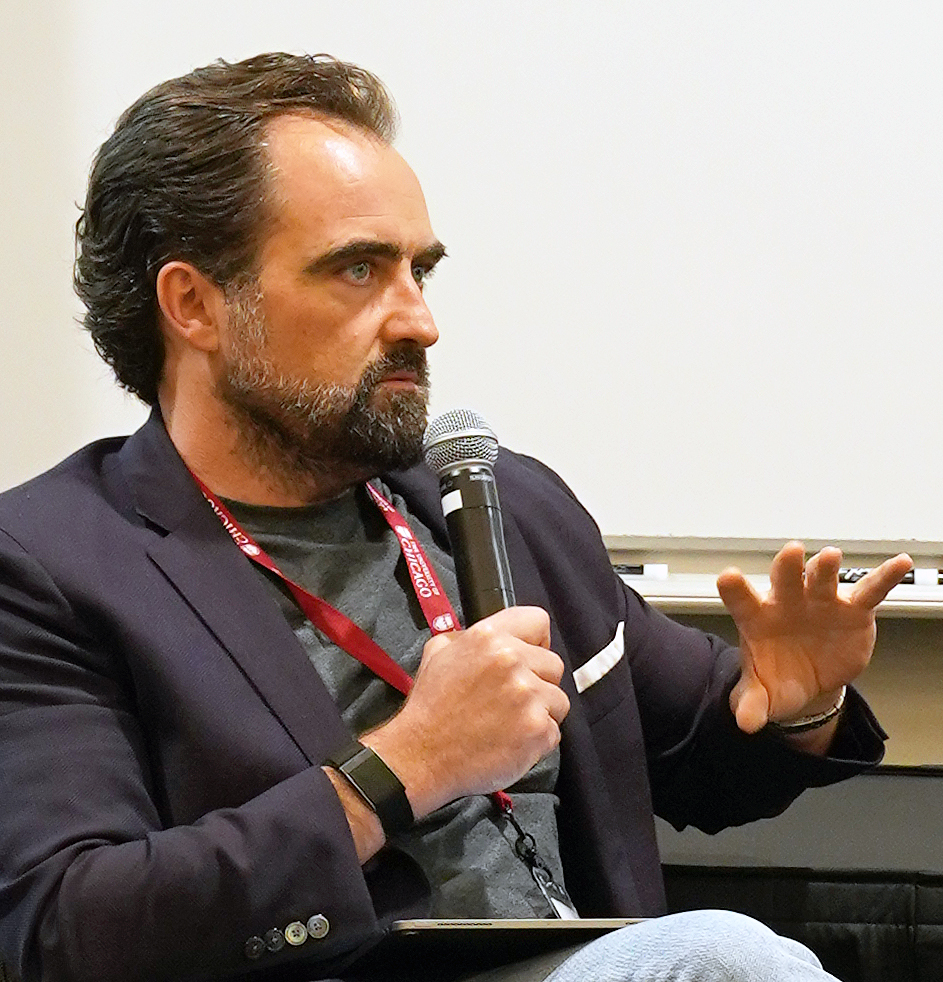Stephanie Marszalek had been working as a registered nurse for eight years when she decided to pursue an advanced degree. Equipped with a clinical background in critical care nursing and a passion for technology and data, Marszalek was not certain the more traditional career paths—particularly MSN-FNP programs—were for her.
When she saw literature about the University of Chicago’s Master of Science in Biomedical Informatics (MScBMI), a program that teaches a range of professionals (including clinicians and tech specialists) to use informatics to revolutionize patient care, a light bulb went off.
“It seemed like the perfect match—and then it turned out to be just that,” says Marszalek.
She began the program as an ICU nurse, working nights and taking classes by day, and maintained this schedule for the duration of her degree. While the return to academia after nearly a decade away required some reacclimating, Marszalek was invigorated by the program’s comprehensive curriculum and the ways in which informatics can be used to transform the current healthcare landscape.
“To see the back end of the kind of the biomedical device integration that I see in hospitals—and be able to understand the workflows and how to intuit and make things easier for my peers that are at the bedside—was really such an attractive skill set for me to obtain,” she says.
As someone dedicated to bridging the gap between peers in the clinical setting and data-based research, including “best practice initiatives and quality initiatives,” Marszalek also found the program’s emphasis on collaboration beneficial.
“It was wonderful to collaborate with interdisciplinary members of the medical community,” she says, noting how the diversity of her cohort's backgrounds and life experiences enriched her time in the classroom. “I had classes with a pathologist I still keep in touch with, and other members of the medical community, including engineers. The collaborative aspect of it was really intriguing to me.”
Plus, this collaboration gave way to ample chances to network with peers and professors alike.
“One of the best parts of the MScBMI program is that it does afford such a wealth of networking opportunities,” Marszalek says. “I couldn't be happier with the contacts that I've made. I have kept in contact with a number of my professors from the program.”
By the final quarter of the program, Marszalek had started applying to jobs—and secured a role—in the clinical informatics space. Beginning her work at a Chicago-based academic clinical informatics institution in March 2020, Marszalek applied the knowledge gleaned from the program to further her immersion into the world of informatics.
And though she started her new job at the very onset of the COVID-19 pandemic, Marszalek felt prepared to excel in the new and uncertain environment. “As informatics has been such a focus during this pandemic, I like to look at it optimistically, in that it did afford us plenty of opportunities to grow and learn—and to see how we could apply informatics in our daily lives,” she says.
Now, over one year later, Marszalek herself continues to grow, too: she’s recently begun applying to PhD programs in biomedical and health informatics.
“It seemed appropriate for me to keep pursuing my education in the informatics space because there's so much more work to do in the field,” she explains. “With the pandemic having dominated the past year, a number of other initiatives have been put on the back burner, like important work focusing on the social determinants of health and even more general areas like the healthcare landscape for all of our citizens.”
As global interest in the field of healthcare informatics continues to increase, so do opportunities for all MScBMI grads, Marszalek stresses.
“Informatics is definitely universal,” she says. “That's the benefit of this program: you can leverage it anywhere [in healthcare] you go.”
The UChicago Biological Sciences Division (BSD) will oversee any future programming. Please visit the BSD website for more information about their offerings.



